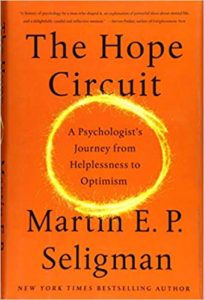
Various studies suggest that optimists experience more success, earn more money, have better relationships, and even live longer than pessimists. These are just some of the benefits of being optimistic.
However, today’s world makes it quite hard to be an optimist due to the disturbing news and events taking place around us. Pessimism and optimism also greatly depend on the person’s socioeconomic status and genetics. While it can be incredibly challenging, the good news is that you can learn optimism just like any other skill.
The author of ‘The Hope Circuit,’ Martin Seligman, explains that pessimism is a highly heritable personality trait, but it’s also modifiable through the practice of specific exercises. In simple words, Martin suggests that while your pessimism may be hereditary, you are not obligated to follow it. It is absolutely possible to reject your pessimistic self and choose optimism.
In this article, we will cover a few simple ways of developing optimism. But first, let’s learn what optimism really is.
What is Optimism?
According to Carver et al. 2010, you can define optimism as “the extent to which you have positive expectations for your future.” This means that you expect good things to take place in the future when you practice optimism.
A theory called the expectancy-value theory of optimism suggests that you can guide your behavior by your desire to reach a value or goal. The confidence that you possess for getting to your goal is what explains the major differences between the concepts of pessimism and optimism.
Ways to Approach Life with Optimism
The positive outlook of the future and your self, called optimism, is an idea that enables you to see, think, and feel in a positive manner. So, how can you become an optimist and achieve maximum benefits from your perception of life?
Here are a few ways you can start off:
Question Pessimistic Thoughts

Taking steps to be more optimistic will not have you joyfully laughing because you made a small salad…
First things first, you need to question what makes you a pessimist in the first place: your negative thoughts. One important thing to remember regarding your negative thoughts is that they are not realistic or fact-based.
In case you find yourself thinking in a negative way about the events and situations in your life, try to pause for a while and question the certainty of your thoughts. A good way to turn pessimist thoughts into optimism is to argue against your own self.
This means that you start to treat your negative thoughts as your nemesis and present your verdict to prove them wrong. This way, your mind will start coming up with positive thoughts to oppose the negative ones.
Give Yourself Credit
Optimism refers to positive thoughts and perceptions towards your self and life. So, what is a good way of thinking optimistically? Well, you could start taking advantage of all the positive things that happen in your life by practicing more gratitude or recognizing wins. Your mind eventually develops a habit to come up with positive thoughts. This includes all the small achievements as well the bigger milestones.
Each time that you encounter a positive situation in your life or achieve something, pause and analyze your thoughts for a while. Are you thinking positive thoughts the same way that your mind induces negative ones in negative situations?
If not, it is time to train your mind. You can start by acknowledging your talents and hard work and giving yourself enough credit when you achieve something big or small. This time, treat yourself as a friend and acknowledge your efforts.
Put Things in Perspective
Counteracting negative predictions with positive ones is another evidence-based approach to developing optimism. Simply put, you need to think of positive thoughts with the same level of positivity as the level of negativity in your negative thought at the moment.
For example, you may start thinking things like “I will be alone forever” or “This is the end” when you get in an argument with your spouse. To counteract this extreme pessimism, come up with extreme optimism.

A Well-Known Sales Parable
A large shoe manufacturer sent two salesman to a third world country to evaluate the market opportunities. They decided to split up in order to cover the entire region.
After a week of traveling around the country, the first salesman sent a message back to the CEO: “Bad news. Nobody wears shoes in this country.”
The next day, the other salesman sent a message, “Excellent news! Nobody is wearing shoes! The opportunity is huge!”
For a situation like this, you may want to think something like, “They will come back in the best mood and will never mention the fight again.” While this is may be unlikely to happen in real life, it can help you find the middle road–the more realistic thought.
This new way of being might be awkward at first, but will eventually get more comfortable the more you practice it.
Things to Remember About Optimism
As a bonus tip, here are a few things to remember for developing optimism:
- Mentally maximize your successes and minimize your failures
- Expect things to change for the better over time rather than right away
- Failures are learning experiences
Conclusion
Practicing optimism can be challenging in the beginning. You will tend to forget the tips at times and continue with your learned thought patterns. However, it is not impossible.
If you are struggling, you can book a free trial session to see if we’re a fit for working together.

Paul Strobl, MBA, CPC
Owner of Confide Coaching, LLC
Paul is a Master Life Coach for individuals, executives and business owners. Originally from Houston, Texas, he has been location independent for most of his adult life. He currently resides in the Rhodope Mountains of Bulgaria near the Greek border with his brilliant wife, 13-year-old stepson (officially adopted in 2021!) and a Posavac Hound rescue.
Sources
https://www.uofmhealth.org/health-library/abl0330
https://www.psychologytoday.com/us/blog/click-here-happiness/202105/4-tips-be-more-optimistic


